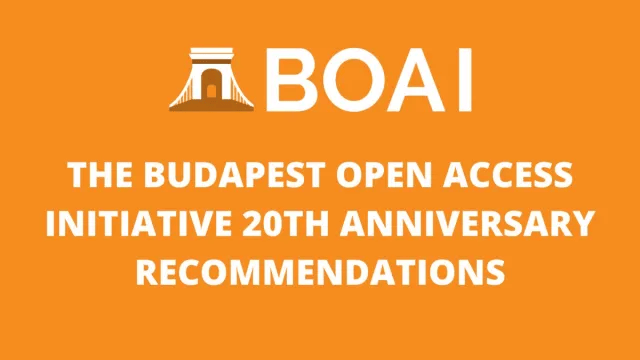The undercover digital agent in Mendoza’s criminal legislation
DOI:
https://doi.org/10.5281/zenodo.15243213Keywords:
digital undercover agent, criminal proceedings, organized crime, fundamental rights, non-self-incriminationAbstract
This paper examined the incorporation of the undercover digital agent into the criminal process of the Province of Mendoza, Argentina, following the reform introduced by Law 9510 to the Code of Criminal Procedure. The objective was to analyze this concept’s normative, procedural, and constitutional aspects in the context of combating organized crime and complex crimes committed in digital environments. The scope of the new legal articles regulating the role of the undercover digital agent was studied, along with other digital investigation tools such as data security and computer systems analysis. This concept’s risks to fundamental rights such as privacy and the right to freedom from self-incrimination were also assessed. The methodology critically analyzed current regulations, specialized doctrine, and relevant jurisprudence. Among the main findings, a tension was identified between the need for investigative effectiveness and the protection of constitutional guarantees. In conclusion, it was argued that the legitimacy of the use of digital undercover agents depends on their rigorous implementation, with strict judicial oversight, defined time limits, and safeguards that ensure respect for due process and fundamental rights.
Downloads
References
Anarte, E., & Ferré, J. C. (1999). Conjeturas sobre la criminalidad organizada. In Delincuencia organizada: aspectos penales, procesales y criminológicos. Universidad de Huelva. https://dialnet.unirioja.es/servlet/articulo?codigo=589300
Arciniegas, G. A. (2020). Policía judicial y sistema acusatorio. Ediciones Nueva Jurídica. https://libreriatemis.com/product/policia-judicial-y-sistema-acusatorio/?srsltid=AfmBOoptolnABV8qeZic4vB_esnKsMS2yUTOqmjNsN9Rd0dnbnWd94Vm
Barja, J., Granados, C., Martínez, A., Martínez-Arrieta, C., Villegas, M. Á., Barés, P., García-Comendador, L., Moreno, A., Sánchez, F. J., & Encinar, M. Á. (2019). Tratado de Derecho procesal penal. LIBRERÍAS MARCIAL PONS. https://www.marcialpons.es/libros/tratado-de-derecho-procesal-penal/9788413094236/
Del Pozo, M. (2006). El agente encubierto como medio de investigación de la delincuencia organizada en la ley de enjuiciamiento criminal española. Criterio Jurídico, 6. https://revistas.javerianacali.edu.co/index.php/criteriojuridico/article/view/1006
Gimeno, V., Calaza, M. S., & Díaz, M. (2020). Derecho Procesal Penal. LIBRERÍAS MARCIAL PONS. https://www.marcialpons.es/libros/derecho-procesal-penal/9788413086293/
González, P. E. (2025). La policía judicial en el sistema penal acusatorio (2nd ed.). Doctrina y Ley. https://www.doctrinayley.com/tienda/libreria/derecho-penal/la-policia-judicial-en-el-sistema-penal-acusatorio/?srsltid=AfmBOorz0VYLisNEUJ_cUhdznKLfi0DdPTGUAeO338SM8PFe90lGIq-g
Granados, C. (2001). Instrumentos procesales en la lucha contra el crimen organizado: agente encubierto, entrega vigilada, el arrepentido, protección de testigos, posición de la jurisprudencia. Cuadernos de Derecho Judicial, 2. Consejo General del Poder Judicial.
Guariglia, F. (1994). El agente encubierto ¿un nuevo protagonista en el procedimiento penal? Revista de Ciencias Penales, (23), 16-33. https://biblioteca.corteidh.or.cr/documento/52051
Guerrero, O. J. (2013). Fundamentos teórico-constitucionales del nuevo proceso penal (2nd ed.). Ediciones Nueva Jurídica. https://nuevajuridica.com/Products/218-FUNDAMENTOS-TE%C3%93RICO-CONSTITUCIONAES-DEL-NUEVO-PROCESO-PENAL
Hefendehl, R. (2004). ¿La criminalidad organizada como fundamento de un Derecho Penal de enemigo o de autor? Derecho Penal y Criminología, 25(75), 57–70. https://revistas.uexternado.edu.co/index.php/derpen/article/view/1040
Jauchen, E. (2005). Derechos del imputado. R. Culzoni. https://biblioteca.mpf.gov.ar/meran/opac-detail.pl?id1=719
Madrid-Malo, M. (2004). Derechos fundamentales. 3R Editores Ltda. https://biblioteca.ucatolica.edu.co/cgi-bin/koha/opac-detail.pl?biblionumber=22780
Márquez, P. (2004). El ojo ve, el poder mira: la arquitectura para la vigilancia y el fin de la privacidad. Pontificia Universidad Javeriana.
Martínez, J. (1994). La configuración constitucional del derecho a la intimidad. Derechos y Libertades. https://e-archivo.uc3m.es/rest/api/core/bitstreams/95f37793-f655-4bc2-ab39-c52f81201f04/content
Martínez, R. (2001). Tecnologías de la información, policía y constitución. Tirant Lo Blanch. https://www.buscalibre.ec/libro-tecnologias-de-la-informacion-policia-y-constitucion/9788484423676/p/3307575?srsltid=AfmBOooAIr4XV19rR0BBv-s7eBr48f9mAUgY8x4TgEaV9JRHA_dtnzSPq
Ruiz, W. (2024). La investigación en el proceso penal acusatorio. Ediciones Olejnik
Published
Data Availability Statement
Not applicable.
Issue
Section
License
Copyright (c) 2025 Patricia A. Cozzo, Jesús C. Salas (Author)

This work is licensed under a Creative Commons Attribution-NonCommercial-ShareAlike 4.0 International License.
































